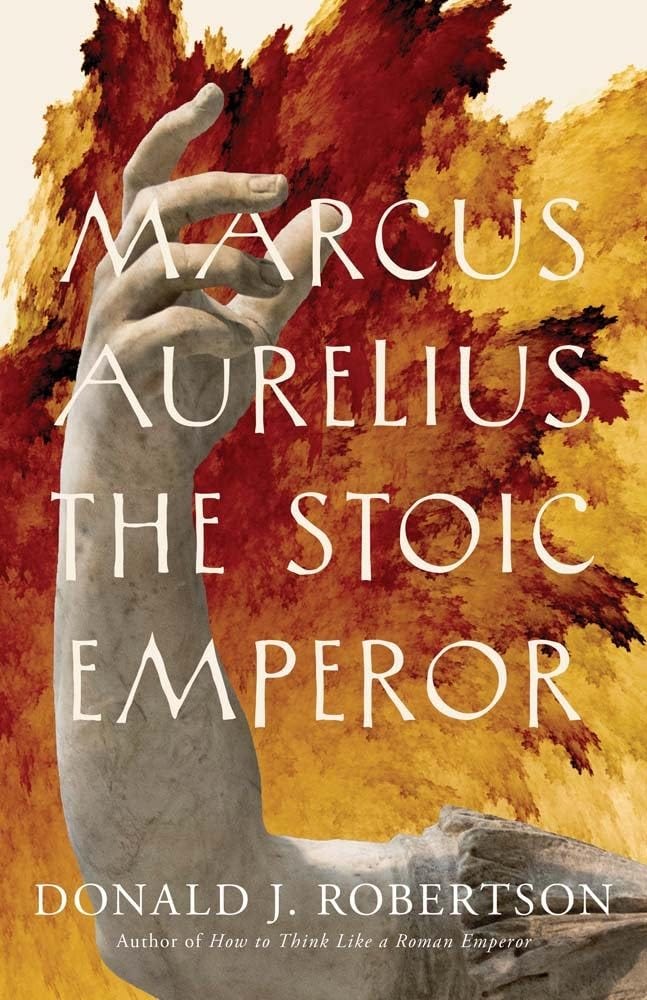It might not be safe to mention Marcus Aurelius in polite company anymore.
“Oh, that slavery guy,” a woman I met at a party several years ago said dismissively of the long-dead Roman emperor and philosopher. I’d brought up one of Marcus’s ideas, and she’d been keen on it until I attributed it. Now she was frowning.
She’d signed a petition to remove an equestrian Statue of Marcus from Brown University’s campus when she was a student there, she explained. “He enslaved lots of people,” she said, softening the critique with a smile and a shrug. “He was a colonialist.”
I’m not sure when endorsing one of Marcus’s ideas became a faux pas amongst a subset of humanity. Maybe it’s not that surprising. Some outspoken people who should know what they’re talking about have a negative take of the emperor. Emily Wilson, translator of critically acclaimed editions of the Illiad and the Odyssey, called him, a “misanthropic, warmongering emperor.”
Biographer Frank McLynn considered it, “deeply sad that Marcus Aurelius should have subscribed to such a bleak and ultimately nihilistic view of the universe and mankind’s place in it,” a view that seems to require an almost willful misreading of Stoicism, Marcus’s guiding philosophy.
I’d read the ancient histories about Marcus casually, and some of the modern academic work, and these takes were baffling. What facts did they have access to that I didn’t?
But then, how well can you know anyone who’s been in the ground 1,800 years?
Enter Donald Robertson
Few people have thought more about Marcus’s life and philosophy than
. The scholar, therapist, and philosopher has worked through the often thorny questions surrounding Marcus’s life to produce some excellent books.I’d characterize 2019’s How to Think Like a Roman Emperor as the self-help/philosophy/practical application side of Marcus’s ideas. Looking for tranquility in a volatile world? That’s the book for you.
But his newly released, “Marcus Aurelius: The Stoic Emperor,” is a kind of psychological biography. It explores the forces that shaped Marcus, what drove him, and how he used his philosophy to navigate the hard choices before him. It’s compelling throughout and should interest many people:
Those who want a concise and interesting overview of Marcus’s life without getting into something scholarly. History buffs will find a lot to like.
Stoics keen to “observe” someone in power navigating life using their philosophy.
Anyone wondering if Marcus’s critics have a leg to stand on.
Did Marcus slaughter the Christians? Was he pro-slavery? What should we make of his despotic son, Commodus? Did he start a bunch of wars? Did Stoic philosophy turn him into a misanthropist? Did he conquer and colonize a bunch of territory?
Spoiler: Marcus comes off looking pretty good.
As a society, we seem increasingly unable to judge historical people on their merits. Instead, the time they lived in becomes an indelible stain. Marcus doesn’t easily fit into the modern dichotomy of good and bad, or into the progressive/conservative divide.
He was a powerful man reining during incredibly turbulent times. Marcus did his best to make the world a better place, and by many measures, he succeeded. That he didn’t turn the Roman Empire into the modern world shouldn’t be held against him.
The people who want to tear down Marcus’s statue on the Brown campus are unlikely to read Robertson’s excellent biography, but for those hoping to understand the man behind some of history’s most inspiring and impactful philosophical ideas, it’s a fantastic place to start.





A thoughtful review, thanks Andrew. That lady from Brown won't think much of my forthcoming book, then, because I have a whole chapter on Marcus's equestrian statue, and its afterlives. I may need to include her, um, intolerant perspective - thanks for alerting me to it.
This seems so obvious: “As a society, we seem increasingly unable to judge historical people on their merits. Instead, the time they lived in becomes an indelible stain. Marcus doesn’t easily fit into the modern dichotomy of good and bad, or into the progressive/conservative divide.”
It’s easy for me to dismiss people who are so mired in their own incantations they don’t want to learn. But that doesn’t help me or anyone else. I too often revert to quoting Schiller and leaving it there. "against ignorance (or stupidity) the gods themselves contend in vain.” That’s unhelpful too.
Thank you for introducing me to a new book on Marcus.